By Bob Hicok
I'm in a plane that will not be flown into a building.
It's a SAAB 340, seats 40, has two engines with propellers
is why I think of beanies, those hats that would spin
a young head into the clouds. The plane is red and loud
inside like it must be loud in the heart, red like fire
and fire engines and the woman two seats up and to the right
resembles one of the widows I saw on TV after the Towers
came down. It's her hair that I recognize, the fecundity of it
and the color and its obedience to an ideal, the shape
it was asked several hours ago to hold and has held, a kind
of wave that begins at the forehead and repeats with slight
variations all the way to the tips, as if she were water
and a pebble had been continuously dropped into the mouth
of her existence. We are eighteen thousand feet over America.
People are typing at their laps, blowing across the fog of coffee,
sleeping with their heads on the windows, on the pattern
of green fields and brown fields, streams and gas stations
and swimming pools, blue dots of aquamarine that suggest
we've domesticated the mirage. We had to kill someone,
I believe, when the metal bones burned and the top
fell through the bottom and a cloud made of dust and memos
and skin muscled across Manhattan. I remember feeling
I could finally touch a rifle, that some murders
are an illumination of ethics, that they act as a word,
a motion the brain requires for which there is
no syllable, no breath. The moment the planes had stopped,
when we were afraid of the sky, there was a pause
when we could have been perfectly American,
could have spent infinity dollars and thrown a million
bodies at finding the few, lasering our revenge
into a kind of love, the blood-hunger kept exact
and more convincing for its precision, an expression
of our belief that proximity is never the measure of guilt.
We've lived in the sky again for some years and today
on my lap these pictures from Iraq, naked bodies
stacked into a pyramid of ha-ha and the articles
about broomsticks up the ass and the limbs of children
turned into stubble, we are punch-drunk and getting even
with the sand, with the map, with oil, with ourselves
I think listening to the guys behind me. There's a problem
in Alpena with an inventory control system, some switches
are being counted twice, switches for what I don't know—
switches of humor, of faith—but the men are musical
in their jargon, both likely born in New Delhi
and probably Americans now, which is what the flesh
of this country has been, a grafted pulse, an inventory
of the world, and just as the idea of embrace
moves chemically into my blood, and I'm warmed
as if I've just taken a drink, a voice announces
we've begun our descent, and then I sense the falling.
--------
Adam goes back to College Park on Saturday for his final semester, so I am having a quiet week hanging out with him as he attempts to do work for NASA when just about every resource he needs is impacted by the shutdown. After lunch we watched Downsizing, which was not at all the comedy advertised after the first half hour; for a while it was really good, an allegorical drama about privilege, cultural arrogance, and impending environmental catastrophe, but then it kind of went off the rails with a badly written romance and an incredibly bizarre apocalypse scenario.
Paul made Ethiopian food for dinner, after which we watched The Orville (very original Star Trek even where bad science is concerned) and the women's short program at the US Figure Skating Championships (I'm sad Mirai and Gracie aren't there). Here are a few photos from last weekend from the National September 11 Memorial & Museum, which do not begin to do justice to the experience of being there. No photos are allowed in the In Memoriam gallery, nor in the enormous exhibit with the timeline of and artifacts from the attacks. May be triggering:
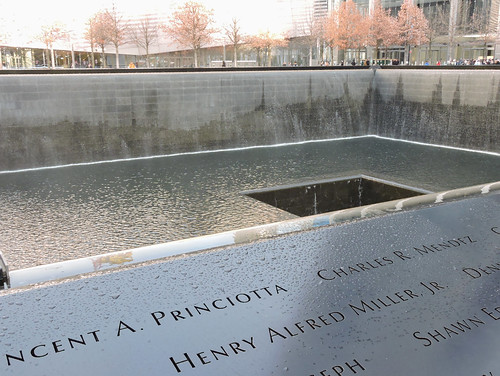
The South Pool memorializes the spot where the South Tower of the World Trade Center once stood. Names of victims are carved around it.
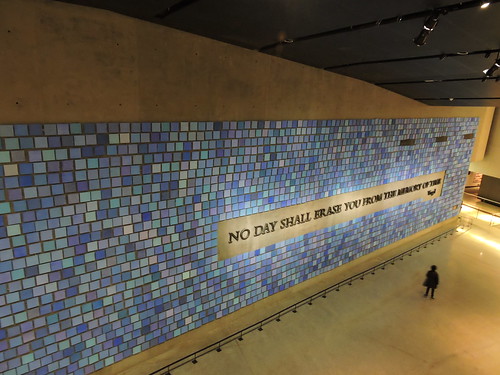
Trying To Remember the Color of the Sky on That September Morning by Spencer Finch (the letters of the quote from Virgil are made from WTC steel).
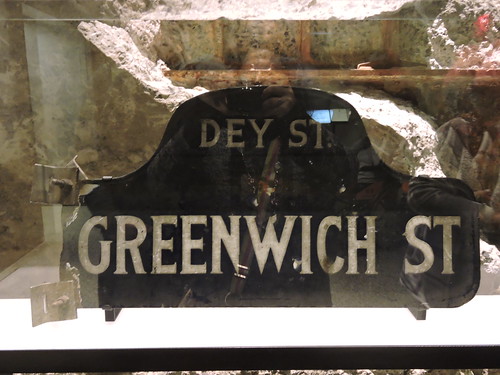
A pre-1968 street sign for a section of Greenwich Street eliminated by the World Trade Center complex, saved by an engineer who worked on the construction.
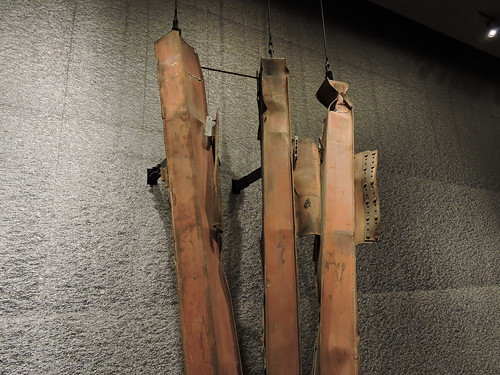
Steel from the North Tower floors 96-99 showing the impact of the plane.
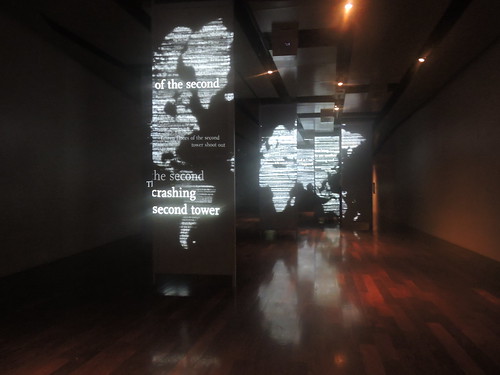
A display of the sights and sounds from that morning.
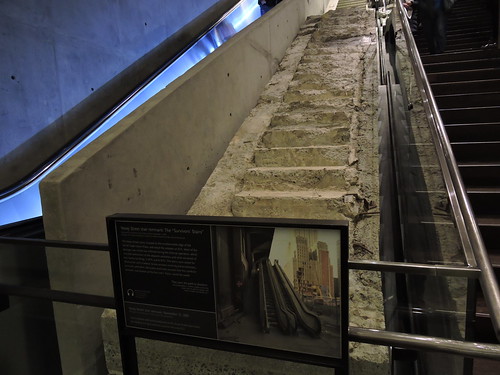
Vesey Street "Survivor's Stairs" remnant.
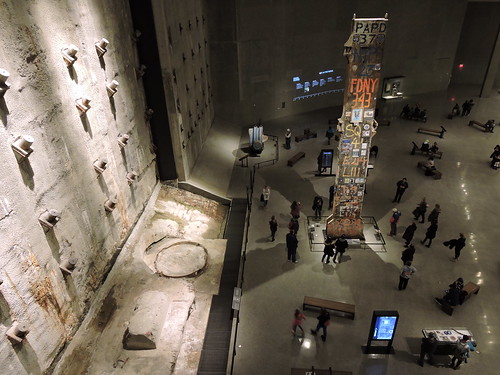
A portion of the slurry wall beneath the World Trade Center, which did not collapse after the attack and thus stopped the Hudson River from flooding into subway tunnels beneath the city, and the "Last Column" which remained upright after the Towers collapsed.
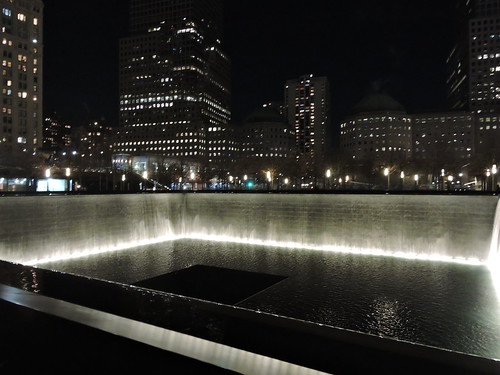
The water in the memorial pools flows in sub-zero temperatures into the night.

No comments:
Post a Comment